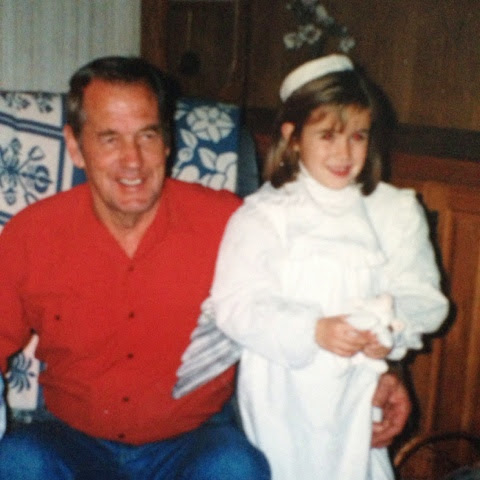To Nathan and Brittany by your sister with love
A clock hung on the kitchen wall facing the dining room table. From the twelve, the second hand ticked around the face in rhythmic, perpetual clicks. Outside the night was a gradient of blackness and the moon shone through like a dimly set ceiling light. The sound of ticking echoed off the wallpaper along with the humming of the refrigerator and the crack of the settling floorboards. In a bedroom across the hall, someone whispered, “I love you,” then added, “to the moon and back.” And the second hand on the kitchen clock circled its face again.
To the moon and back again, like ocean waves, never arriving, but always changing, always in motion, tracking the rhythm of the universe like a child letting her head fall back as she is thrown into the air and repeats, “again, again!” Like a tiny bird leaving its perch, clumsily spiraling with gravity, sensing a violent impact before—there they are. The moment the meaning of flight is understood and wind is felt between the feathered armpits of small magnificent wings. Vital repetition carries the momentum, wings pumping air like two hearts beating in perfect rhythm.
And you will go back again, because you, like everything else, are an infinity of seconds, some capsizing, others beating so subtly they’re hardly real. Like the breathing of the water’s tides and the beating of birds’ wings you will rise and fall back again, a motion like the second on the clock’s face; there, a moment, a snapshot, a long inhale of movement. See the wave, its foaming edges, its sprawling momentum across the ocean’s surface, then back again, into the water, a rush of sound subsiding, giving out an enormous sigh before disappearing into the sea.
And in between a breath, the initial inhale, the moment the wave surfaces and wings feel the meaning of flight, that’s where life and love and possibility exists, where you both exist. It’s every moment your eyes open at twelve AM and she’s laying there beside you. It’s the second a smile spreads across his face when you reach over and hold his hand in both of yours. Inhale, “I love you to the moon,” a moment as thick as the tick on the kitchen clock. Then the respire, the sweet release, exhale, “and back,” a wave merging into infinity, a bird mingling with gravity, before rising up again.
..















